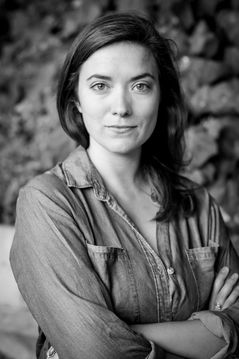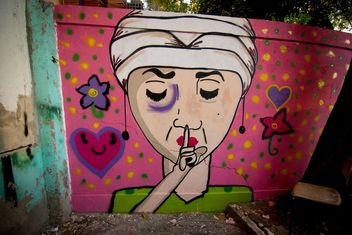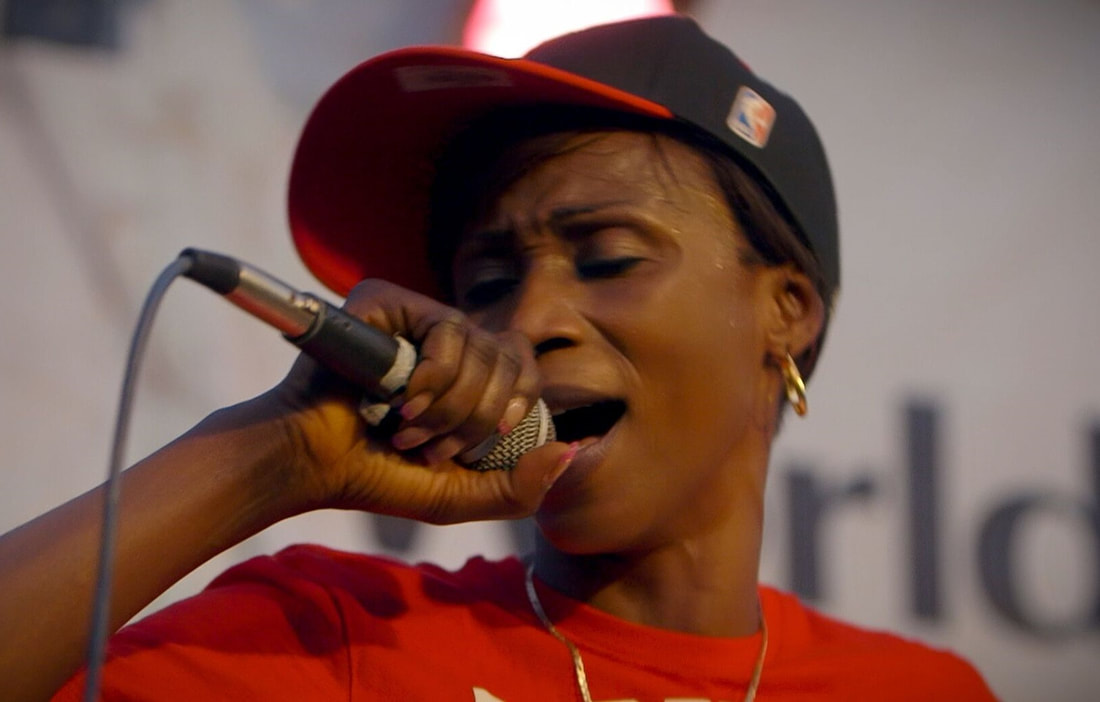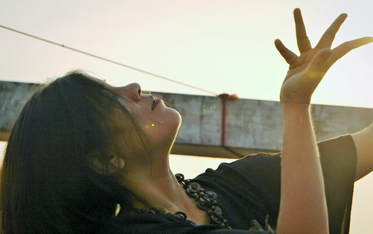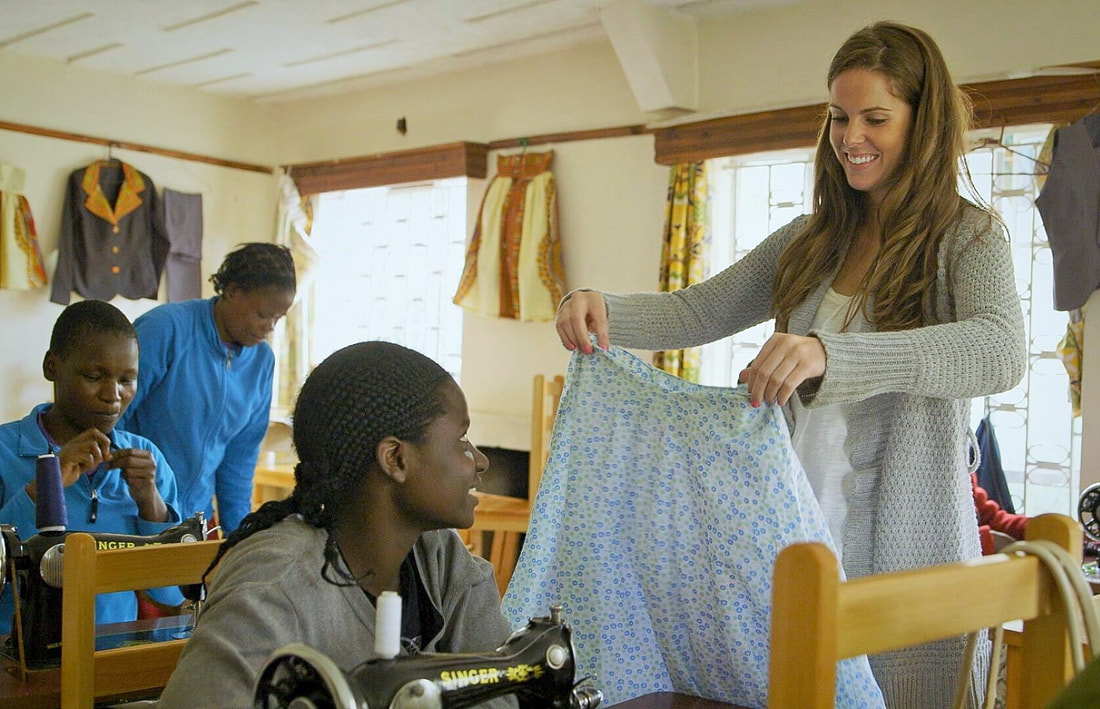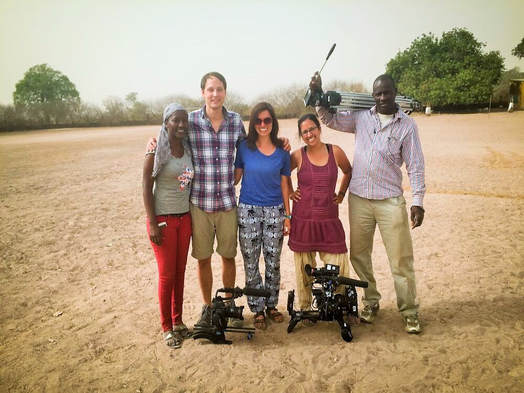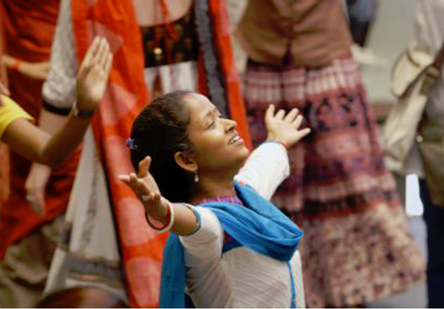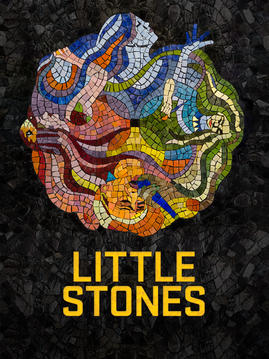May 2018 Featured Interview |
|
Interview with
Sophia Kruz
Emmy Award-Winning Documentary Filmmaker
Photo Credit: Little Stones
About Sophia:
Sophia Kruz is an Emmy Award-winning documentary filmmaker and co-founder of the nonprofit Driftseed, which seeks to empower women and girls in the U.S. and around the world through the art of documentary storytelling. Her work has been broadcast nationally and screened at film festivals and museums around the world.
Sophia is a graduate of the University of Michigan’s Screen Arts & Cultures Program. From 2010 through 2013, she held the position of Video Producer & Editor at UMS (University Musical Society, University of Michigan) where she produced, directed, and edited the EMMY Award-winning hour-long documentary A Space for Music, A Seat for Everyone (2013). Formerly a producer in PBS Detroit's National Documentary Unit, Sophia produced Ride the Tiger (2016), a documentary on neuroscience and bipolar disorder, and Beyond the Lightswitch, Hour 3 (2015) for national PBS broadcast. Her latest film, Little Stones (2017), unites the personal narratives of four women around the world who use art to create positive change in their communities.
Sophia’s documentary work is supported by the following organizations: National Endowment for the Arts, Michigan Council for Arts & Cultural Affairs, Marian Chace Foundation, International Expressive Arts Therapy Association and Womanity Foundation. She was awarded the 2018 Susan B. Anthony Community Award from the University of Michigan for her service and leadership in the promotion of equal rights for women.
Sophia Kruz is an Emmy Award-winning documentary filmmaker and co-founder of the nonprofit Driftseed, which seeks to empower women and girls in the U.S. and around the world through the art of documentary storytelling. Her work has been broadcast nationally and screened at film festivals and museums around the world.
Sophia is a graduate of the University of Michigan’s Screen Arts & Cultures Program. From 2010 through 2013, she held the position of Video Producer & Editor at UMS (University Musical Society, University of Michigan) where she produced, directed, and edited the EMMY Award-winning hour-long documentary A Space for Music, A Seat for Everyone (2013). Formerly a producer in PBS Detroit's National Documentary Unit, Sophia produced Ride the Tiger (2016), a documentary on neuroscience and bipolar disorder, and Beyond the Lightswitch, Hour 3 (2015) for national PBS broadcast. Her latest film, Little Stones (2017), unites the personal narratives of four women around the world who use art to create positive change in their communities.
Sophia’s documentary work is supported by the following organizations: National Endowment for the Arts, Michigan Council for Arts & Cultural Affairs, Marian Chace Foundation, International Expressive Arts Therapy Association and Womanity Foundation. She was awarded the 2018 Susan B. Anthony Community Award from the University of Michigan for her service and leadership in the promotion of equal rights for women.
|
Photo Credit: Sophia Kruz
Panmela Castro teaches high school students about domestic violence by creating graffiti art. Photo Credit: Little Stones
Sister Fa Performs in the Vélingara region of Senegal. |
About Little Stones: This film follows four women who use art to create positive change for women across the globe. Graffiti artist Panmela Castro rose to the top of the male-dominated graffiti world in Brazil by blazing her own trail and using street art to raise awareness about domestic violence. Sohini Chakraborty is a dancer and sociologist in India who knew instinctively that dance could help girls reclaim their bodies after the trauma of trafficking. Senegalese hip-hop star Fatou Diata (a.k.a. Sister Fa) tours to spark a dialogue about female genital mutilation, which is still considered too taboo to discuss in many communities. Anna Taylor is an American fashion designer who founded Judith & James a company that trains and employs impoverished Kenyan women to produce high fashion clothing. Little Stones is Kruz's directorial feature debut and has won several awards, including Best Documentary at the 2017 Vail Film Festival, Best Foreign Documentary at the Female Eye Film Festival, and an Award of Excellence at the Impact Docs Awards, to name a few.
|
Photo Credit: Little Stones
Sohini Chakraborty Performing at sunset. Photo Credit: Little Stones
Anna Taylor looks at a skirt made by a woman in training at the James 127 Foundation's tailor training program. |
About Driftseed:
Driftseed is a 501c3 organization which aims to educate high school students about the power of documentary film storytelling. The Center for Education Design, Evaluation, and Research at the University of Michigan’s School of Education teamed up with Driftseed to create an educational toolkit to teach students about global gender-based violence and the power of art to create social change. The kit contains lesson plans, workshops, and discussion guides. These lessons and workshops can be used individually in single class periods or combined for a more immersive classroom experience. The lessons are aligned with Common Core standards and are suitable for social studies, art, law, economics, gender studies courses, and more.
Driftseed is a 501c3 organization which aims to educate high school students about the power of documentary film storytelling. The Center for Education Design, Evaluation, and Research at the University of Michigan’s School of Education teamed up with Driftseed to create an educational toolkit to teach students about global gender-based violence and the power of art to create social change. The kit contains lesson plans, workshops, and discussion guides. These lessons and workshops can be used individually in single class periods or combined for a more immersive classroom experience. The lessons are aligned with Common Core standards and are suitable for social studies, art, law, economics, gender studies courses, and more.
Myrna Beth Haskell, managing editor, spoke with Sophia about her film Little Stones, the nonprofit Driftseed and how art can be a vehicle for positive change.
What got you interested in documentary filmmaking and could you tell me about an early project you worked on?
I fell into it in college. I created a film my senior year that portrayed a personal family journey. Ultimately, I wanted to share the story of my dad coming out as a gay man and to convey that it’s okay to have a gay parent. The film wound up going to some small film festivals. After one screening, a woman came up to me and said, ‘I just came out to my sons, and your film gave me hope.’ It made me realize how much of an impact I could have on others through filmmaking.
What got you interested in documentary filmmaking and could you tell me about an early project you worked on?
I fell into it in college. I created a film my senior year that portrayed a personal family journey. Ultimately, I wanted to share the story of my dad coming out as a gay man and to convey that it’s okay to have a gay parent. The film wound up going to some small film festivals. After one screening, a woman came up to me and said, ‘I just came out to my sons, and your film gave me hope.’ It made me realize how much of an impact I could have on others through filmmaking.
|
What inspired you to create your award-winning documentary Little Stones? Had you met any of the four featured artists prior to starting work on the documentary?
I hadn’t met them in person until after the concept developed. At the time, I was creating science documentaries at PBS. I had wanted to do something on women’s issues for quite a while. A friend of mine told me about Sohini. Her story really spoke to me because I have always been interested in dance - I started dancing at the age of two - and she uses dance movement therapy to heal and empower. I knew there was something of great importance to her story, even though I hadn’t met her yet. I eventually had a Skype call with her, and she suggested that I come to India. It was a standing invitation. I started to wonder if other women were thinking outside the box as Sohini had. I did a lot of research to find the others: Graffiti artist Panmela Castro, hip-hop star Fatou Diata (a.k.a. Sister Fa) and fashion designer Anna Taylor. All four women were using their artistic talents to educate, inspire and heal. We filmed everything for the documentary. We spent weeks in the various countries to get the footage needed. There’s something special about seeing what they do in person. It gave me a renewed passion for the project. When you’re there in person…on the ground…meeting these women…well, it’s just really powerful work. |
Little Stones Crew in Senegal:
(Left to Right): Yaye Ami Mbaye Diop (Interpreter), Rob Migrin (Cinematographer, Sound Recordist), Sophia Kruz (Director, Producer), Meena Singh (Director of Photography, Co-Producer), Muniru (Driver, Production Assistant) |
A quote from your documentary states, “We must fight against traditions and cultures that are hurting women.” By creating this film, you’ve become part of that fight. Why do you think art is such a powerful tool when it comes, not only to personal expression, but in changing perspectives, educating and making a difference?
|
|
From what I’ve seen, art builds communities. It’s a powerful way of connecting people. Art opens up deeper conversations about issues. It cuts through the noise because people love and appreciate music, fashion, street art and other forms of artistic expression.
In India, there is a stigma that follows those who have been in the brothels, and many wind up back there. The dance therapy that Sohini provides, not only helps to heal, but provides these victims of sex trafficking with the chance for a better life – many are trained and become dance therapists themselves and begin to help others. Carmela was a victim of domestic violence who was afraid to leave her home - literally afraid to go outside. When she began doing her graffiti, the established, male graffiti artists provided her with a sense of safety and camaraderie. These big, tough guys developed a friendship with her and were open to hearing her story and what she was trying to accomplish with her art. This encouraged her to use her art to educate others. All of the women in the film have used their art to educate, inspire and heal. |
Have there been other works that you’ve produced that have encouraged change?
I produced a documentary for PBS titled Ride the Tiger: A Guide Through the Bipolar Brain, a one-hour documentary that tells the stories of highly accomplished individuals who have been diagnosed with bipolar disorder. So much still needs to be learned about how the illness manifests itself in our brains. The film stresses that talk therapy is a very positive way to treat bipolar disorder and that drugs, if prescribed, work better in combination with talk therapy and other approaches. Holistic care is a more cost-effective way to treat bipolar disorder. More people need to be exposed to a holistic approach.
I produced a documentary for PBS titled Ride the Tiger: A Guide Through the Bipolar Brain, a one-hour documentary that tells the stories of highly accomplished individuals who have been diagnosed with bipolar disorder. So much still needs to be learned about how the illness manifests itself in our brains. The film stresses that talk therapy is a very positive way to treat bipolar disorder and that drugs, if prescribed, work better in combination with talk therapy and other approaches. Holistic care is a more cost-effective way to treat bipolar disorder. More people need to be exposed to a holistic approach.
|
Tell me about the nonprofit Driftseed. It seeks to empower women and girls in the U.S. and around the world through the art of documentary storytelling. Was this inspired by Little Stones?
As we were finishing production on Little Stones, Meena, my cinematographer and co-producer, and I had conversations about how we could continue working together. We wanted to extend the work of the film. People can be moved by the film, but if you don’t give them something to do, what’s the point? Meena Singh and I, along with Ankita Singh, a licensed New York State attorney, founded Driftseed. We wanted the nonprofit to have an educational component. We then started to apply for grants, and a full curriculum was developed by the University of Michigan School of Education. It’s a 156-page curriculum for teachers to use at the high school level to teach students the art of documentary filmmaking and how these films can become vehicles to encourage positive change. Teachers in the Washington D.C. area and in Michigan are starting to use the curriculum. |
Photo Credit: Little Stones
Jhulan, a dance movement therapist and survivor, dances at Kolkata Sanved’s 10th Anniversary Celebration. |
Where do you find your joy, peace, strength and fulfillment? In a place, a person, a hobby, or quiet moment alone? What feeds your soul and fuels your fire? (#WheresYourSanctuary)
Lately, I’ve been traveling so much in order to get out there and talk about the film, so I’m exhausted. More and more, I’m finding that being at home with a good book and hot cup of tea is where I find sanctuary.
Lately, I’ve been traveling so much in order to get out there and talk about the film, so I’m exhausted. More and more, I’m finding that being at home with a good book and hot cup of tea is where I find sanctuary.

